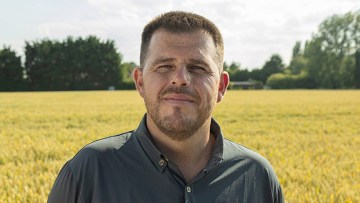LUXIMO® ON FARM: Nigel Durdy
2024/2025
About Nigel
Nigel Durdy of Ninevah Farm, near Doncaster in Yorkshire left school at 16 and started work as a contractor before being able to buy some land. He now farms 1,100 hectares in partnership with his brother Adrian.
Nigel is the agronomist and sprayer operator for the business, annually spraying over 2,500 ha of mainly combinable crops with his 36 m Rogator sprayer.
He has been BASIS qualified for over 20 years and, during training, recalls someone telling him that a farmer has up to 16,000 possible decisions to make to grow a crop, starting with the choice of field and crop, followed by all the possible options of inputs and timings.
“Fortunately, a lot of it becomes second nature. I drive the sprayer, which helps me get to know the crops and the fields’ black-grass burden.”
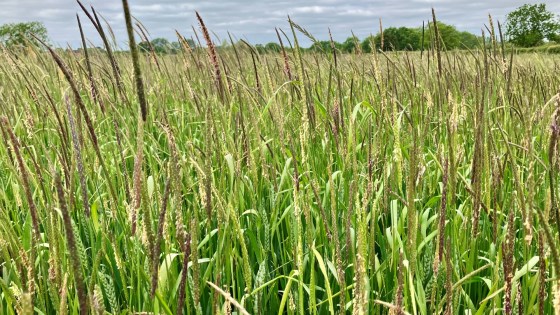
Black-grass
Black-grass is under control in the wheat.
Nigel says, “I am happy with it, we have been working for quite a few years to control it and levels are decreasing.”
Nigel attributes this success to 3 factors:
- Good husbandry
- Not growing oilseed rape
- Having an excellent pre-em product- Luximo®.
“Luximo has stood the test of time; we have very good black-grass control.”
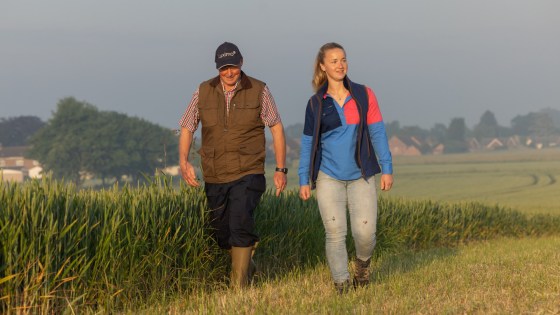
Rotation
Now in its second year, approximately half of the farm has been placed into a 3 year rotational SFI scheme, the other half is first wheat.
“We opted for a summer fallow which we established by cultivating the land in the autumn, although we didn’t drill until spring. In April we sprayed off the growth with glyphosate and stitched in the cover crop, rolled it and that’s it.
“The rules of the scheme are that the cover crop must flower and then we can destroy it and get ready for the following wheat crop.
“We won’t destroy it until well into August, the timings will be very similar to what they would be with anything else.”

Autumn 2024
Autumn 2024 began wet; however, conditions improved in October.
“It stopped raining, dried out and the drilling windows were there to be had.
Crops were drilled in the first half of October and the pre-emergence herbicide, Luximo, was applied in good conditions.
“I went with Luximo, I didn’t use any Avadex, purely because we were in a first wheat situation and I didn’t feel it was necessary.
“We have really noticed that over the past 2 years our levels of blackgrass have gone down now that we are out of oilseed rape.”
The crops of Champion, Skyfall and KWS Zealum established well and came through the winter in good condition.
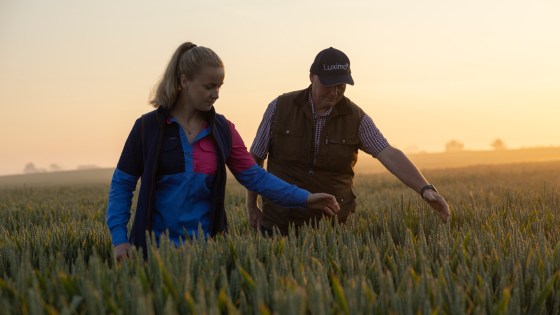
Spring 2025
Nigel’s wheats have been unscathed by the dry spring.
“In general most of the wheat crops look fairly promising. We are not going to get a bumper yield but we will get a reasonable yield because they are first wheats and were established in good conditions.
“Most of my wheat crops are on reasonable land, it is varied but I have nothing on sand land so the crops didn’t drop tillers in the drought.
“Overall we are in a good position.”
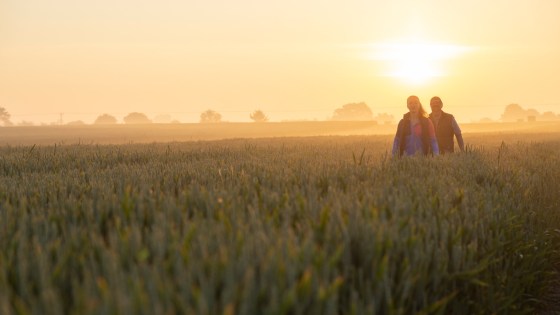
Looking ahead
Nigel has no plans to change his black-grass strategy.
He says, “All being well, I will only be applying Luximo to the wheats this coming autumn. The only thing that will make me change – if we have an odd difficult field or if we have a second wheat then we would put some Avadex on as an extra.”

